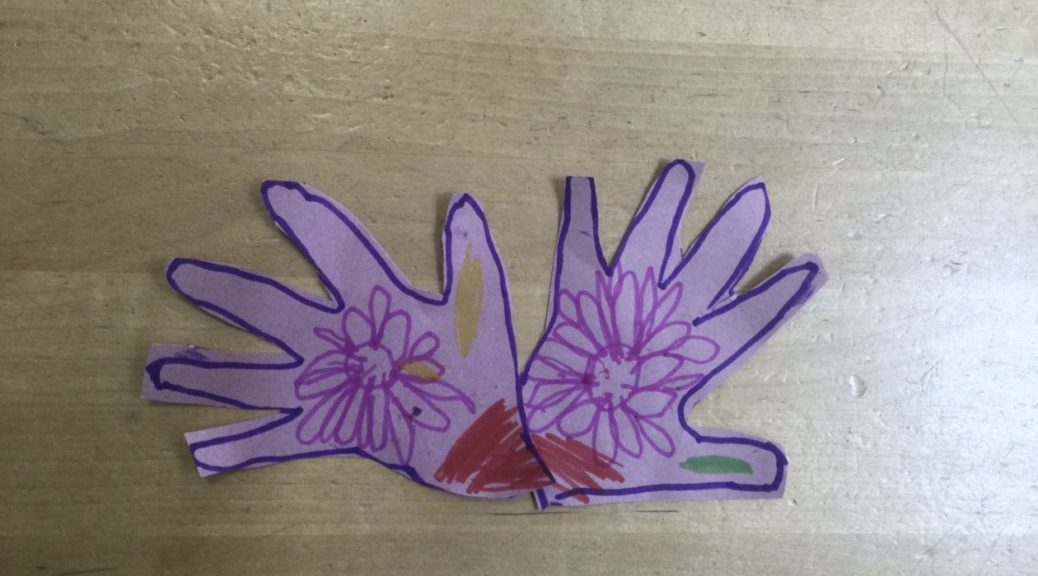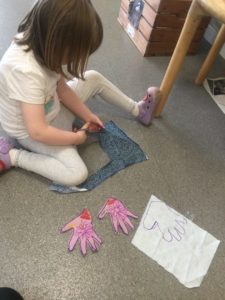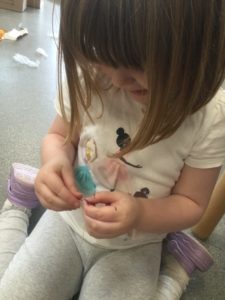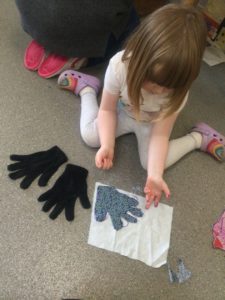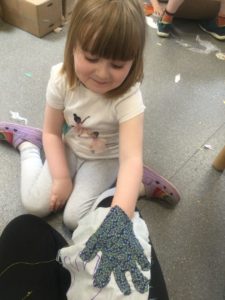In the studio this week one of our children drew around her hands onto paper, then she cut them out and decorated them. This sparked an idea “I want to make some gloves”
Using her problem solving skills she decided the paper would just rip if we tried to put it on her hands but she could use her paper hands to draw around and use some material. All of a sudden, she had a template!
“I want to sew my gloves for school, will I have a enough time before I go?
Once she selected and measured her material she had to make sure it was big enough for the size of her hand.
Mastering fine motor skills and the hand grip required to hold and thread the needle, she got to work sewing. Well done!
We found a pair of gloves to help us problem solve how we were going to create our gloves. We discovered that the hands that we drew around didn’t match. They have to be symmetrical to be able to make the glove. We began sewing the glove onto the other material to cut around it after.
With a a little of help holding the fabric our super glove designer was able to sew all the way around the fingers. After a lot of hard work and concentration we tried the glove on to see if the glove fits.
The glove fits 🤩 Amazing Work!
“I need to make another glove because 2 gloves make a pair”
Sewing helps children understand the creative process, develop fine motor skills, improve their concentration, and learn how to work with their hands. This can help them become more independent and self-motivated.
Article 29 – You have the right to education which tries to develop your personality and abilities as much as possible and encourages you to respect other peoples rights and values and to respect the environment.

